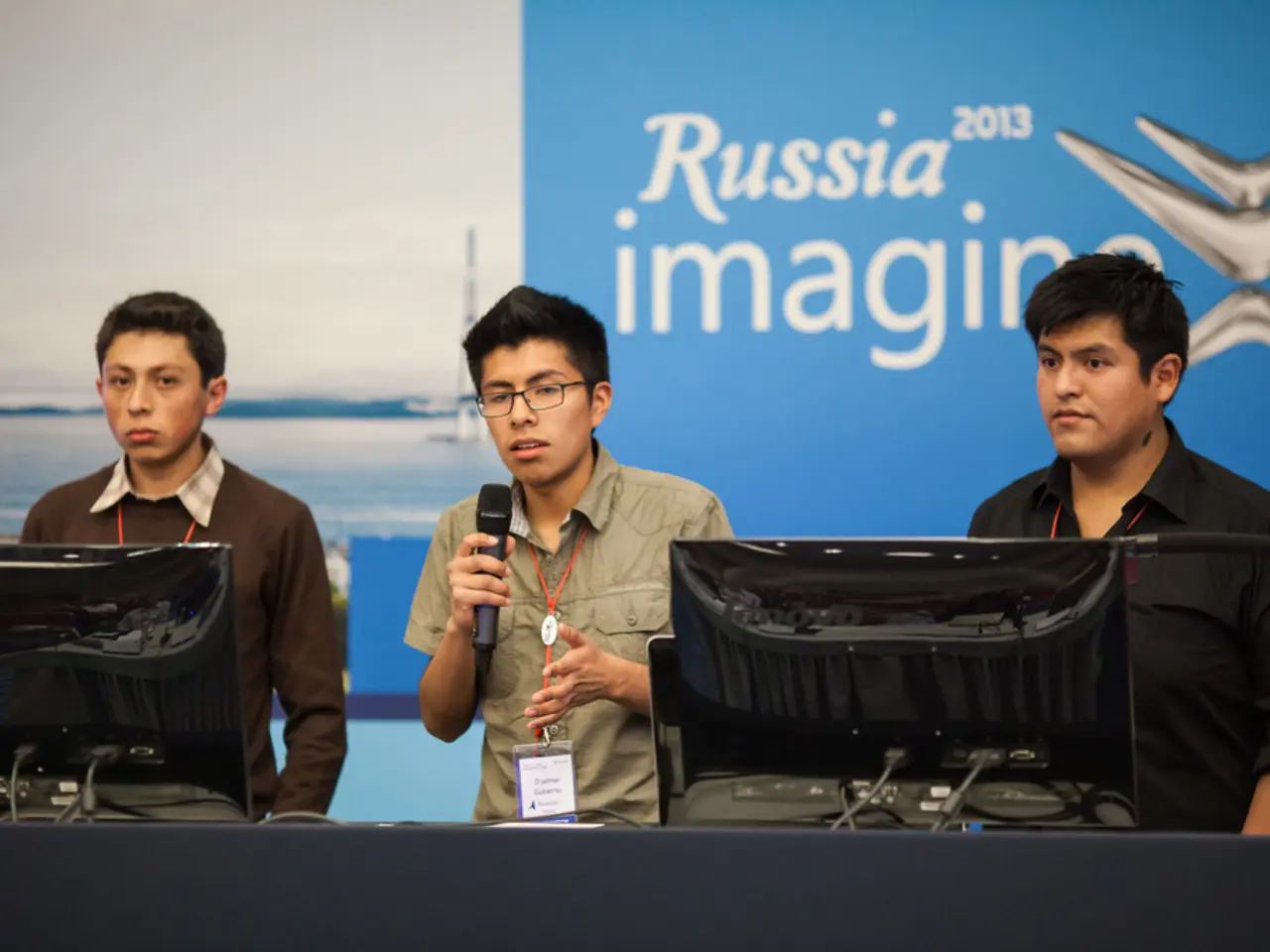Senate Republicans spearheaded by the PPP have instigated a filibuster, aiming to defer the passage of bills introduced by the DP-led coalition
South Korea's "Yellow Envelope" Bill Delayed After Filibuster
The "Yellow Envelope" bill, a significant labor reform proposal, has been delayed in the South Korean National Assembly following a filibuster by the opposition People Power Party (PPP). The bill, which passed through the Legislation and Judiciary Committee on August 1, 2025, is now awaiting a full vote in the Assembly later in August.
The bill, originally tabled at Monday's plenary session, aims to broaden the scope of an "employer" when dealing with labor unions and ban companies from claiming damages against labor unions for strikes. This revision of the Trade Union and Labor Relations Adjustment Act, also known as the "Yellow Envelope" bill, has been a contentious issue for some time.
The PPP initiated the filibuster to delay a vote on the bill, marking the first such occurrence in over a year. The filibuster, which began on Monday and is scheduled to last until Tuesday afternoon, has resulted in a 24-hour delay of the legislation, pushing it beyond the end of the current session and potentially delaying it for several weeks.
The PPP's filibuster targets a revision of the Broadcasting Act, concerning the governance structure of public broadcaster KBS. The bill aims to limit the government and politicians' power to name directors to the boards of KBS, MBC, and EBS TV.
The filibuster has caused a stir in the National Assembly, with dozens of Democratic Party lawmakers walking out of the session during the filibuster. When a filibuster is initiated, a continuous debate session begins that cannot be halted by a vote until 24 hours have passed.
The Democratic Party chose to bring a bill concerning broadcast governance to the parliamentary vote after some twists and turns, given the gravity of the problem in the current media governance structure that is prone to political influence.
Despite the delay, the "Yellow Envelope" bill is not dead in the water. The following 428th session of the National Assembly is set to start on Wednesday, and votes for the remaining contentious bills, including the Trade Union Act revision, are likely to start in its earliest plenary session, currently scheduled on Aug. 21.
The PPP's filibuster has escalated political and economic tensions between labor and business interests, but the final outcome remains to be seen. The bill's passage would fulfill a major campaign promise by President Lee Jae Myung, reinforcing his pro-labor stance, while opponents warn it could increase strike frequency and disrupt production.
The "Yellow Envelope" bill's journey through the National Assembly has been a long and contentious one, but it continues to move forward, albeit at a slower pace than initially anticipated. The final plenary vote will be crucial in determining the bill's fate and the direction of labor reform in South Korea.
- The delay in the National Assembly of South Korea's "Yellow Envelope" bill, a significant labor reform proposal, is part of the broader landscape of policy-and-legislation, as it reflects the political negotiations and maneuvering within the Assembly.
- The ongoing filibuster by the opposition People Power Party (PPP) on the "Yellow Envelope" bill and the unrelated Broadcasting Act revision, has become a point of general-news interest, as it highlights the intersection of politics and policy-making, and the potential impact on the economy and labor relations in South Korea.








